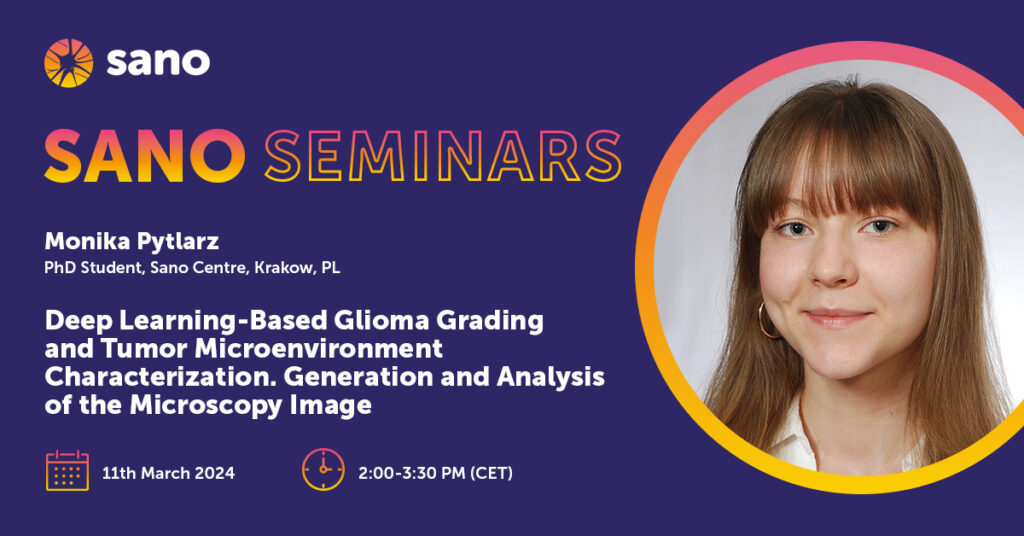125. Deep Learning-Based Glioma Grading and Tumor Microenvironment Characterization. Generation and Analysis of the Microscopy Image
Monika Pytlarz – PhD Student, Computer Vision (Brain&More), Sano Centre for Computational Medicine, Krakow, PL
Abstract
Gliomas, as aggressive brain tumors, necessitate precise grading for effective treatment. The role of myeloid cells in the tumor microenvironment (TME) is increasingly recognized as important in glioma progression and patient prognosis, highlighting the need for advanced diagnostic tools that can accurately characterize these tumors.
Current glioma grading heavily relies on manual histological evaluations, which are time-consuming, subjective, and may overlook intricate TME characteristics.
Existing glioma grading methodologies primarily employ deep learning models, such as convolutional neural networks and vision transformers, which, despite their successes, face challenges due to the need for large annotated datasets and their limited ability to capture the complex tumor microenvironment.
Our study tests supervised deep learning approaches with data augmentation and k-fold cross-validation for glioma grading. It then applies an existing single-cell analysis with weakly supervised deep learning to brightfield microscopy tissue microarray images stained with HLA-DR/DP/DQ, representing a new adapted application of this pipeline. The focus is on characterizing myeloid cell accumulation. This method differentiates glioma grades by identifying distinct phenotypic neighborhoods within the tumor microenvironment.
Despite the small dataset and the challenge of separating WHO grades 2 and 3, the analysis identified neighborhoods N2 and N4 as key to differentiating malignant gliomas. The DenseNet121 pretrained HSV model outperformed the baseline by 9%, achieving 69% accuracy on the test set. These findings highlight the potential of deep learning for accurate glioma classification and underscore the role of myeloid cells in tumor assessment.
About the author
I obtained a B.Sc. in Electroradiology from the Faculty of Health Sciences of the Jagiellonian University and an M.Sc. in Bioinformatics from the Faculty of Biochemistry, Biophysics, and Biotechnology of the JU. I have experience working in a hospital’s Department of Diagnostic Imaging. My Ph.D. project focuses on the generation and analysis of microscopy images compared to other modalities.


